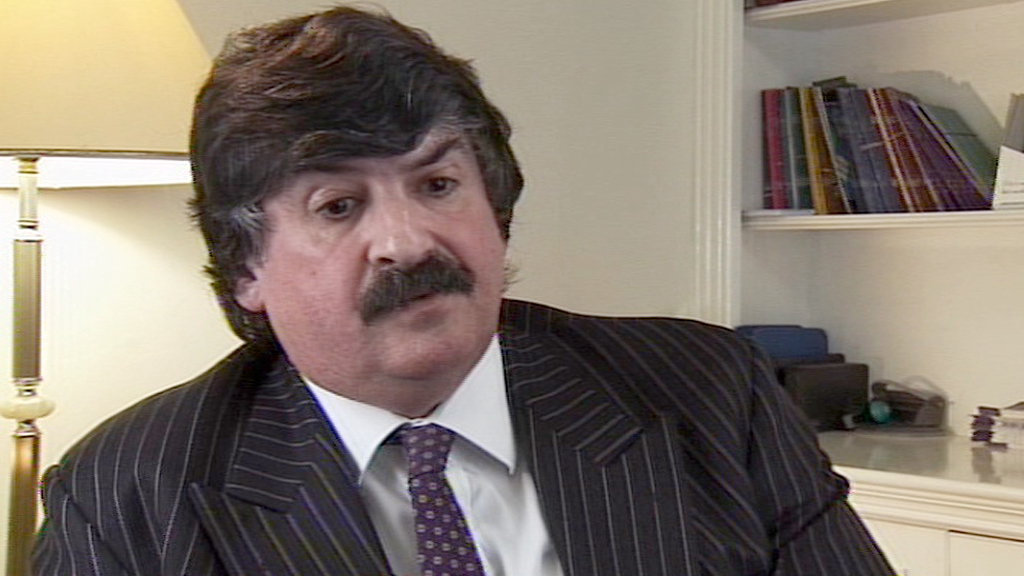CONSULTANT forensic psychiatrist Dr Ian Bownes has worked with children across Northern Ireland who have displayed sexually abusive behaviour.
In his view, the millions of pounds spent every year on residential treatment for these troubled young people is worth the cost and has the ability to turn their lives around.
He has knowledge of the teenager whose three-year residential treatment programme cost £1.5m and describes cases like this as “not unusual”.
“There would not be enough young people needing treatment at any one time to justify a specialist unit for adolescent sex offenders in Northern Ireland,” he said.
“The young people who are being funded to go across the water to specialist treatment units have different needs and different aspects to their personality.”
The consultant estimated that up to £6m a year is spent on ‘extra contractual referrals’ or ‘out of area transfers’, as they are known, for a range of clients. This includes young people suffering from anorexia and up to four children each year from Northern Ireland treated for displaying sexually harmful behaviour.
Referring to the SHB cases, Dr Bownes said: “We have no choice but to send these young people to a specialist unit. It is very rare that someone starts this kind of behaviour at age 12 and that it keeps building up until they become a predatory rapist or paedophile but we cannot take the risk of leaving their behaviour untreated.
“These children are taken away from their often chaotic home lives for two or three years and this gets them through their adolescent period. It is really only after this that we will know what we are dealing with.
“Running parallel to their sexualised behaviour are often other issues like stealing cars, using drugs and getting into fights. There are often many variables and sexually inappropriate behaviour is just one of many factors.”
Dr Bownes is an expert in ‘forensic assessment’ which is often used in these cases.
He said: “For a lot of these young people, their difficulties stem from their childhood and that is what a forensic assessment is based on. We look at how people’s personal development comes from their environment, like who they live with and who their role models are.
“They may be from a dysfunctional or violent family where sexual contact between siblings is not stamped out by the parents and the parents may even have mental health problems of their own. These children just go to wherever their impulses and hormones lead them.
“We need to look at their family circumstances. Are there violent role models? Is there any history of sexual abuse? Do the parents or siblings engage in sex in front of the children? A lot of that will mould a child’s sexual behaviour. If the family is chaotic and sexualised, that will seem normal to the child.”
Dr Bownes said that the situation can improve with the right input, therapy and by taking children out of their damaging home environment.
He continued: “In the treatment centres, the children are given positive role models and the opportunity to develop their education and skills to make more positive choices in the future.
“While they are away in England or Wales receiving treatment, we hope that social workers and others are providing support to sort out their parents back home. Many of these children come from violent households so the mother may be encouraged to leave a violent partner for example.
“There are of course varying degrees of success in working with the families. If the situation does not improve at home, some children need to be taken into care following their treatment.”
Dr Bownes said that most children do very well on the treatment programmes.
“They do benefit from being away and broadening their horizons and meeting people from other cultures. They, literally and metaphorically, become less incestuous,” he explained.
“The cost of the private treatment centres is usually money well spent, although they will also require an extensive follow-up programme when they come back.
“I know the sums of money we are talking about may sound horrendous to some people given the current financial climate but it is usually worth it.
“The vast majority of the young people we are talking about come from a dysfunctional background but they have the capacity to be empathetic, to reflect on what they have done and to turn their lives around. It is expensive but it does work.”
